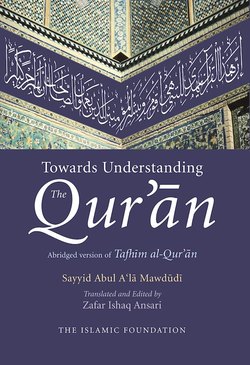Читать книгу Towards Understanding the Qur'an - Sayyid Abul A'la Mawdudi - Страница 39
На сайте Литреса книга снята с продажи.
ОглавлениеTowards Understanding the Qur’an
the Arabic idiom and it was feared that the continuing use of various dialects in the recitation of the Qur’an might give rise to grave problems. It was possible, for instance, that someone hearing the Qur’an recited in an unfamiliar dialect might pick a fight with the reciter, thinking that the latter was deliberately distorting the Word of God. It was also possible that such differences might gradually lead to tampering with the Qur’an itself. It was also not inconceivable that the hybridization of the Arabic language, due to the intermixture between Arabs and non-Arabs, might lead people to introduce modifications into the Qur’anic text, thus impairing the grace of the Speech of God. As a result of such considerations, and after consultation with the Companions of the Prophet, [Uthman decided that copies of the standard edition of the Qur’an, prepared earlier on the order of Abu Bakr, should be published, and that publication of the Qur’anic text in any other dialect or idiom should be proscribed.
The Qur’an that we possess today corresponds exactly to the edition which was prepared on the orders of Abu Bakr and copies of which were officially sent, on the orders of [Uthman, to various cities and provinces. Several copies of this original edition of the Qur’an still exist today. Anyone who entertains any doubt as to the authenticity of the Qur’an can satisfy himself by obtaining a copy of the Qur’an from any bookseller, say in West Africa, and then have a hafiz (memorizer of the Qur’an) recite it from memory, compare the two, and then compare these with the copies of the Qur’an published through the centuries since the time of [Uthman. If he detects any discrepancy, even in a single letter or syllable, he should inform the whole world of his great discovery!
Not even the most sceptical person has any reason to doubt that the Qur’an as we know it today is identical with the Qur’an which Muhammad (peace be on him) set before the world; this is an unquestionable, objective, historical fact, and there is nothing in human history on which the evidence is so overwhelmingly strong and conclusive. To doubt the authenticity of the Qur’an is like doubting the existence of the Roman Empire, the Mughals of India, or Napoleon! To doubt historical facts like these is a sign of stark ignorance, not a mark of erudition and scholarship.
xxxviii
